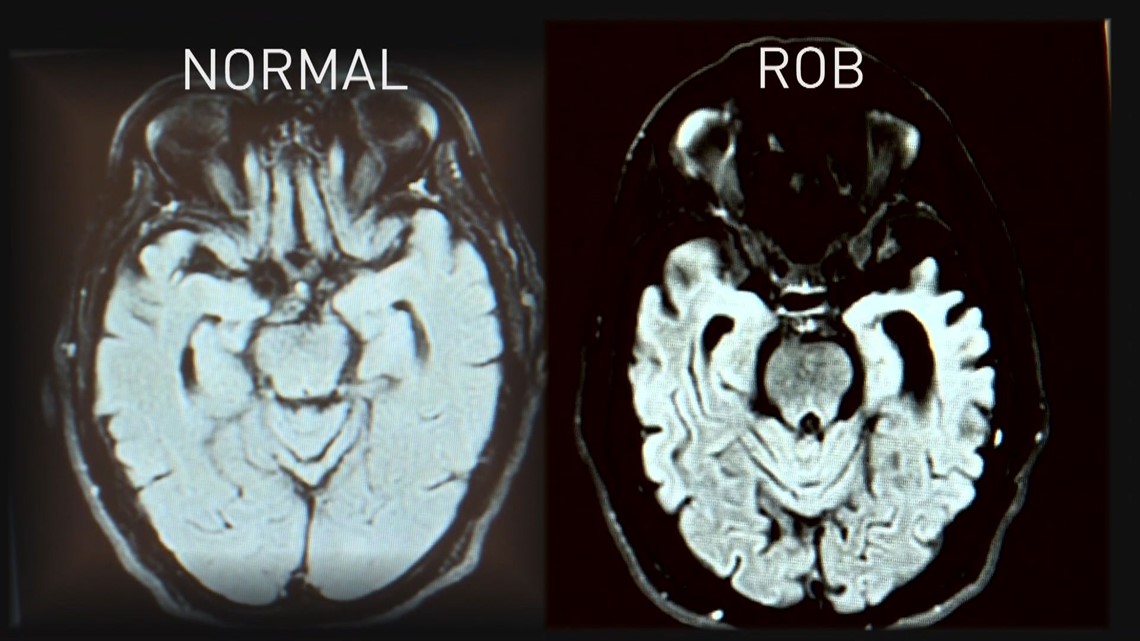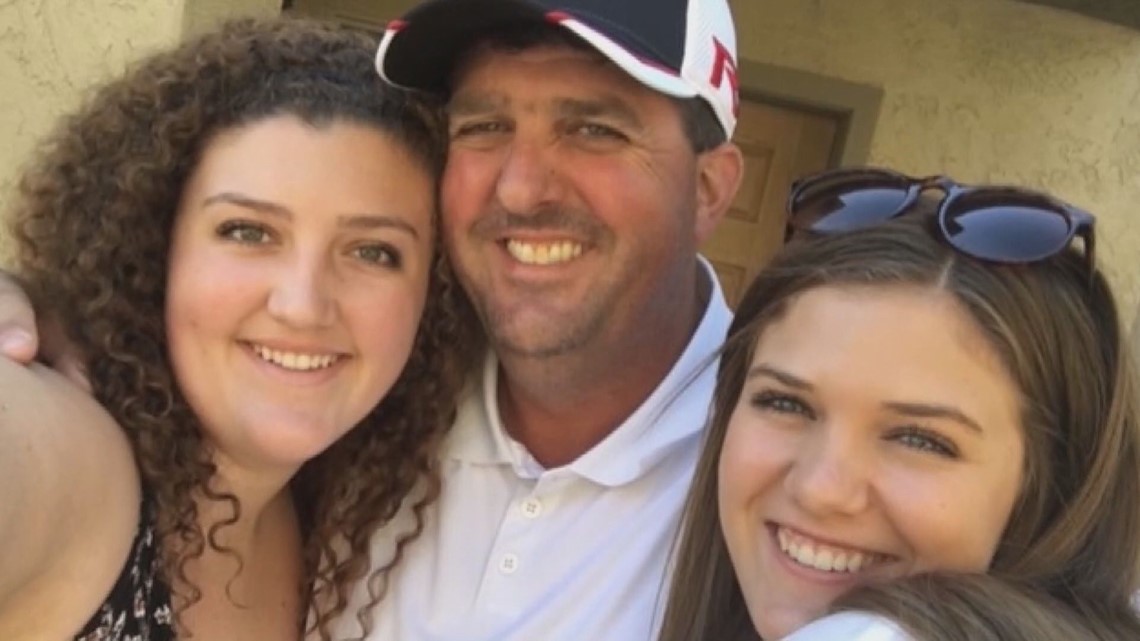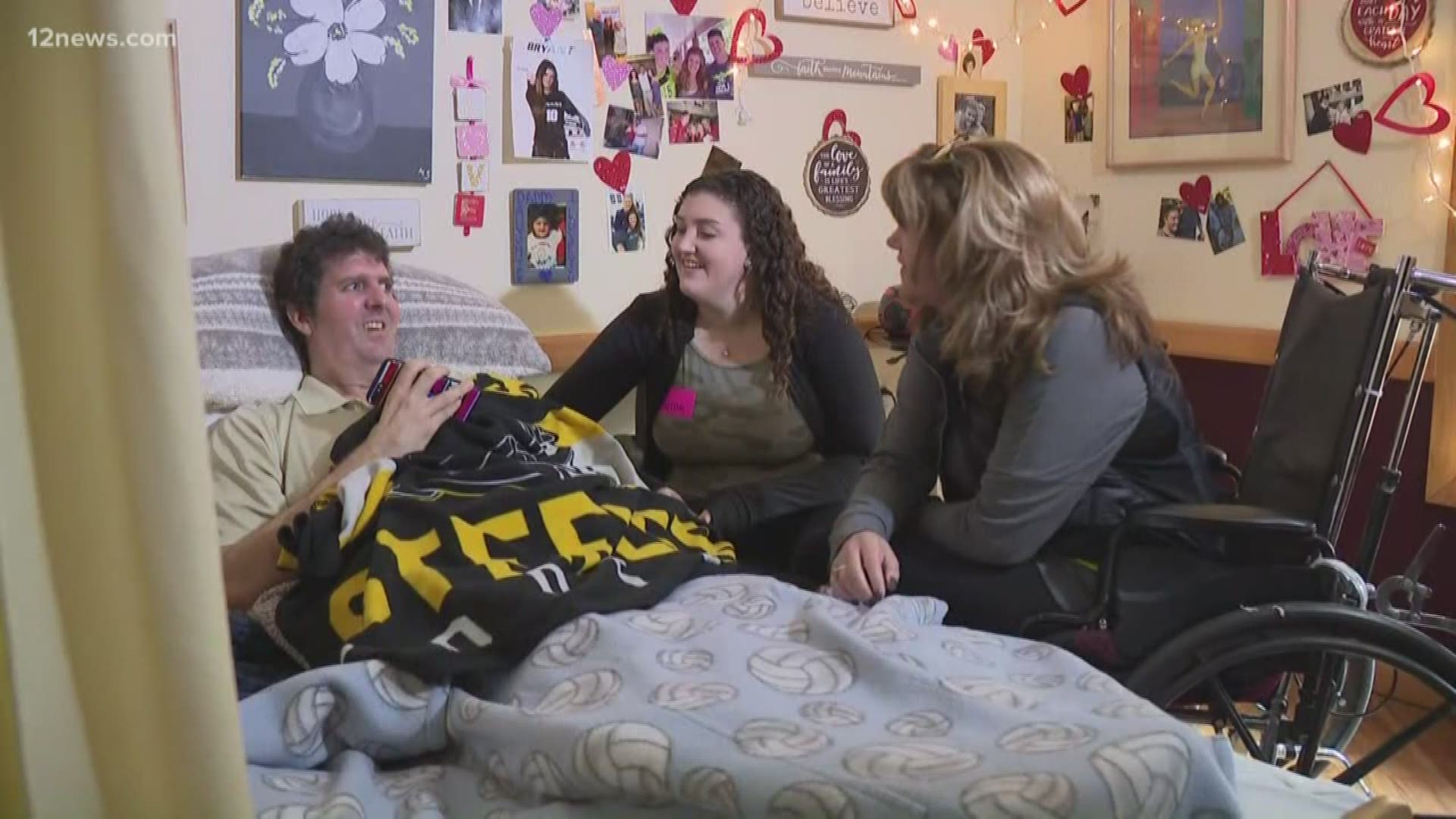PHOENIX — The Rob Knight his wife remembers loved golfing, hiking, traveling and barbecuing.
“We would have barbecues every weekend, constantly. Constantly, we’d have birthday parties, class parties, the swim parties, all of it – and he would just be the master of the barbecue,” Wendy Knight remembered.
But at age 55, Rob sits in a nursing facility. He quietly sings along to a song playing on his daughter's phone.
The part of his brain that controls conversations is gone.
"That's kind of the only time we hear his voice is when he's singing. So he doesn't talk, so this is like a conversation – the best I can have with him, even though it's one-sided," Wendy said.
The reason for Rob's transformation is a disease called frontotemporal degeneration, or FTD.
An uncommon disease
Only about 60,000 Americans are diagnosed with it. Many of them, like Rob, are misdiagnosed at first.
“This can get confused for depression. It can be confused for other psychiatric disorders like schizophrenia,” said Dr. Meredith Wicklund, a neurologist at Barrow and Rob’s doctor.
FTD can also be misdiagnosed as Parkinson’s disease or Alzheimer’s, according to the Association for Frontotemporal Degeneration.
But FTD differs from Alzheimer’s in that it is much less common and mainly affects younger people – ages 45 to 65.
Another difference between FTD and Alzheimer’s: the memory of a person with FTD usually stays intact, with behavior, speech and movement declining, AFTD says.
On average, it could take almost four years to get an accurate diagnosis.
Symptoms
A common symptom of FTD is increasingly inappropriate social behavior, according to the Mayo Clinic. This includes missing social cues, making offensive comments or not respecting personal space.
Other symptoms include a loss of empathy, a lack of interest and loss of inhibition.
For Rob, his behavior changed so much, he lost jobs and even moved away to Iowa, nearly leading to a divorce.
Wendy said she still didn’t know the cause of this drastic change in behavior at the time.
“The journey would’ve been a lot different,” she said. “If we had gotten an earlier diagnosis – would’ve never let him go.”
Causes and treatment
At this time, there is no available treatment for FTD.
And typically, after a diagnosis, the victim has five to eight years to live.
“Essentially, the brain does just shut down. The most common cause of death is actually pneumonia,” Dr. Wicklund said.


What scientists do know is that one of two proteins – TAU or TDP 43 – start to accumulate in the brain and cause brain cells to die off.
But doctors have no idea what causes it.
“In some cases, it’s genetic, but that’s not the majority,” Dr. Wicklund said. “Most people do not have a family history of this disorder.”
Rob did not get diagnosed until April of last year.
Wendy said he can’t do anything for himself, but he still finds joy spending time with Wendy and their daughters, Sammie and Jenna.
“It’s really hard just day to day. You never know what’s going to happen,” Sammie said.
Wendy said she doesn’t want other people to go through the years of uncertainty she and her family went through.
“Had I known what I know now, I would’ve had that conversation of how much you’re loved … The hardest part is they’re gone. They slip away before anybody can grasp it,” she said. “They’re gone before you get to say goodbye. It’s hard.”


Rob will be donating his brain to research. Wendy is hoping it can help make a difference.
You can find more information about the behavioral changes, speech problems and movement disorders that come with FTD at the Mayo Clinic’s website here.
MORE STORIES:

